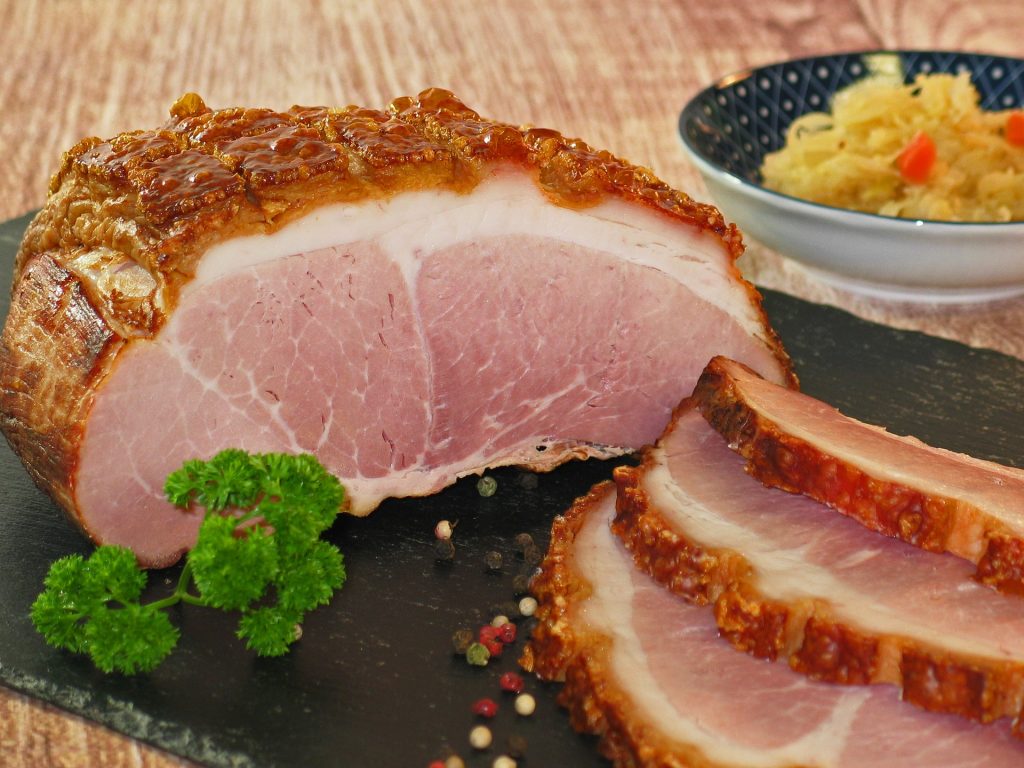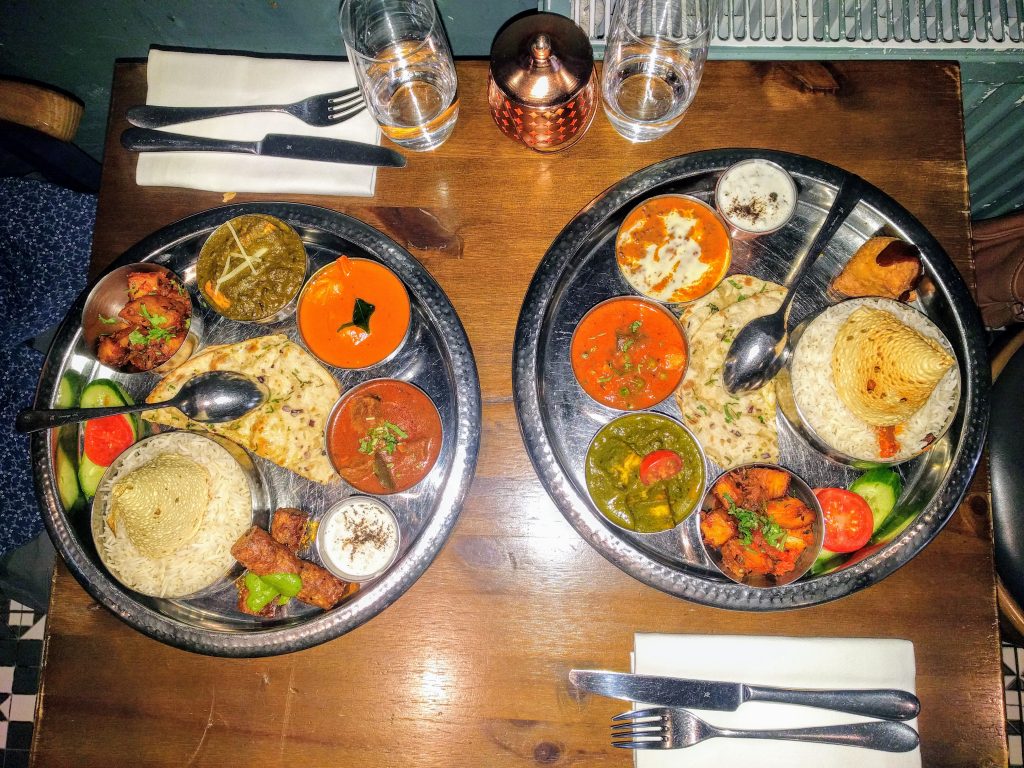

Sharing foods is one of the best bridges for exchanging friendships and cultures. How and where you grew up influences your taste buds, sense of adventure in sampling new flavors, and what is considered visually and aromatically appealing. I grew up in a small Midwest town where “spice” meant ketchup, allspice, and celery salt. Garlic was an occasional clove in the spaghetti sauce. I am happy to report that I have somewhat nurtured a food and spice compass thanks to being a dinner guest in many international homes and 15 years of hosting international guests. Through trial and error and a sprinkle of naïveté, I would like to share Ten “Matters” on foods and spices that often work (or do not work) across the complex bridge of preferred tastes.
Whether you find yourself hosting your international co-workers, providing meals for international travelers, or housing international university students, you are the “chef” of warmth and hospitality. As the Dutch say before eating, Smakelijk!
Research: Take time to research your guests’ countries and become familiar with the general spices and typical foods. This is NOT to cook these dishes but to think about adding one dish that might be similar to your guests’ version of comfort food. Cook food you are most comfortable preparing. Do not try new recipes or compete with preparing Japanese food for your Japanese guests. Abundant platters of rice, meat (not pork), vegetables, flatbread, and salads will visually please Arab guests.
Share your food culture: I do not travel and work in various countries to eat American food. This “recipe” applies to your internationals while in the USA. Barbeques, buffets, a baked potato party, Super Bowl fare, picnics, potlucks, holiday fare, and regional foods open magnificent windows of American tradition… which leads us to the next point.

One Size Does Not Fit All: Be aware of items not in the diets of certain cultures: Cheese and dairy products are not exactly favorable for some Asian pallets. Pork is not eaten by people of Muslim or Jewish faiths. Hindus do not eat beef and are often vegetarians or vegans. Many folks are allergic to shellfish. Alcohol may be offensive. Assure your guests that it is okay if they don’t particularly care for a particular dish. “An acquired taste” may be apropos.
Taste Buds: Try asking this question beforehand, “What don’t you prefer to eat or what is a spice you don’t care for?” While in a graduate program, I participated in a Study Abroad program in Spain and my first meal consisted of pork, which is a welcoming dish in my host family. I haven’t eaten pork in decades for personal reasons. It was uncomfortable for both sides. Internationals may not know some common American condiments, such as mustard, hot sauce, ranch salad dressing, or celery salt, but I have found the question helpful. Warning… guests may say that they like everything as not to offend or appear fussy so try this: “On a scale from one to five, one is a no-no, and five is something you love, what number are you?” You’ll hear the realistic responses and everyone saves face!
Diplomatic Crowd Pleasers: Certain foods translate across borders, depending on diet restrictions, spices, colors, and textures: rice, salads, pasta, French fries, chicken, meatloaf, bread, Italian-influenced foods, hard-boiled eggs, fried fish, fruit salad, and more. Why not invite guests to share the cooking experience with you? Note: View “Matter Three.” For example, rice is cooked in zillions of ways and appears in all different flavors and colors. Read on.

Simple Meals: Keep preparations simple. On one occasion and for some reason, I felt I had to prepare a zillion dishes during a hot Atlanta day, while my air conditioner was not working and the garbage disposal was leaking all over the kitchen floor. Not one of my better hosting moments.
Ambiance: If you enjoy entertaining, your guests will undoubtedly feel the ambiance. Include extended family members and invite friends. Many international guests grew up in collective cultures. For example, a client from Tunisia said that Thanksgiving dinner for was one of his best American experiences during his one-year stay… mainly due to the ambiance a dozen of folks seated around the table.
Beverages: Keep coffee, teas, sodas, and juices on hand. Many of my Chinese guests like to sip on hot water in the morning or after dinner. Be sure to know your guests well enough to bring the wine and Scotch out. Many will not want ice in their beverages.
Aroma: Garlic and olive oil are often nose pleasers. I know many people who think cilantro tastes like soap, so keep cilantro aside when in doubt. Ground pepper may work in the Southern USA, but I know many Northerners who would prefer to leave it out. Hot sauce may be fine for your Cameroonian or Korean guests, but Brazilians would be horrified with picante on meats. My Indonesian guest really enjoyed coconut-flavored curries, and he always ate with a big spoon. Ironically, he did not like spicy foods. Go figure! Become familiar with the cultural tastes of sweet and savory.

Presentation: An attractive appearance may include platters, several small dishes, or a wooden bowl full of fresh baguettes. The texture is also a consideration: crunchy, soupy, tender, and chewy. One Brazilian client commented that he did not like “things that float.” A Mongolian guest skeptically viewed paella, a traditional dish from Spain, because he had never seen yellow rice (Matter Five). My new love, turmeric, offers a pleasing taste, an appealing color, and it is healthy.
Create a balance of introducing American foods, become familiar with spices and typical foods from the prospective guest’s country, and consider how to best present the dishes. You may discover that taking your guest out to an American-style restaurant is easier! Guests also play their part in building a bridge by receiving; in other words, “to sing for their supper.” A friendly word of caution: Over-directing your guests will exhaust you and not allow the environment to unfold at its own pace. Be a guest at your own party. Enjoy the adventure and pleasure of building a culinary bridge with new-found friends. Voilà!
Kathy Ellis created her own company in Atlanta, Georgia USA, Intercultural English Services, Inc., to provide Intercultural Communication Competency skills and English as a Second Language service.